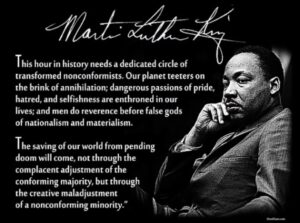Climate Crisis
Tuesday, April 5, 2022
April 5, 2022I often contemplate, particularly now, where our country would be without the influences of Rupert Murdoch and the state media he has created in the U.S. He began his residency in 1974 and became a U.S. citizen in 1985 after relinquishing his Australian citizenship, the legal requirement for US television network ownership. He established the FOX News Channel in 1996, the same year former president Bill Clinton signed the Telecommunications Act, overhauling 60 years of regulation. Murdoch thrived. And he is destroying us.
Astute and true:
New Zealand Prime Minister Jacinda Ardern said her country doesn’t have to deal with the “rage of older white men” because “we’ve never allowed Rupert Murdoch to set up a media outlet here.”
The veracity of the quote is being questioned. Regardless, he shouldn’t have been able to start his media empire here, and Clinton shouldn’t have sold us out. Cue Roger Ailes and Newt Gingrich and Rush Limbaugh. And here we are.
•DT
•Insurgency
•Plague
•Climate Crisis
•War
Our existential soup. Could we please hold off on adding any more ingredients? Maybe let this batch simmer for awhile.
Gen. Mark A. Milley on the Russian invasion of Ukraine: “We are witness to the greatest threat to peace and security in Europe – and perhaps the world – in my 42 years of service in uniform.”

Ukainian President Volodymyr Zelensky (C) speaks to the press in the town of Bucha, northwest of the Ukrainian capital Kyiv, on April 4, 2022. – Ukraine’s President Volodymyr Zelensky said on April 3, 2022 the Russian leadership was responsible for civilian killings in Bucha, outside Kyiv, where bodies were found lying in the street after the town was retaken by the Ukrainian army. (Photo by RONALDO SCHEMIDT / AFP)
Anne Baring, The Dream of the Cosmos-A Quest for the Soul:
p. 273
“Evil has its origin in this deeply unconscious predator-prey pattern of behavior. I think that, in relation to the harm we are capable of inflicting on the human beings, evil may be defined as the act of inflicting terror, suffering, humiliation, torture or yeah on an individual or group of individuals ranging in kind from the murder of a child to the atrocities currently taking place in Syria (2012) to the viciously cruel attacks on others on Facebook and Twitter. One of the most difficult things to recognize is that each one of us in capable of acting in a hateful cruel or evil way, or of being complicit in these ways of behaving, whether as an individual or as the member of a government, institution, corporate body or nation. […] The fact that an International Court of Justice now exists to try those who commit such crimes against human unity is evidence of collective progress in moral awareness. But this progress requires perpetual vigilance lest we slip back into old unconscious habits. [2013]
Ukrainian President Volodymyr Zelenskyy spoke to the United Nations Security Council today. Here is the link to watch his speech and listen to the statements by various countries after he spoke. There were technical issues with the video he wanted to share with the council, at about 1:15:00 into their remarks, the video was shown. We want to look away, we can not. Ever.
From The Hill:
‘If Russia is not removed from the council, Zelenskyy said the body should just be dissolved.
“If there is no alternative and no option, then the next option would be dissolve yourself altogether,” he said.
The Ukrainian president proposed a global conference to convene in Kyiv to discuss reforms to the United Nations.
“It is now clear that the goals set in San Francisco in 1945 for the creation of a global security international organization have not been achieved, and it is impossible to achieve them without reforms,” he said.’
“I don’t know where we fall in the legacy of life.”
-Sean PennWe crave leadership, and authenticity.
Matthew Fox, a spiritual theologian.
“Rabbi Heschel teaches that a prophet’s primary task is to interfere. Julian of Norwich, by calling us to interfere with patriarchy and heal the wounds that it has wracked upon human history and the human soul and the earth, beckons u from folly to wisdom. Are we listening?”
Fr Richard Rohr:
“Stage One people: At this level tend to be preoccupied with the pleasure, security, safety, and defense of their material state. And that extends to their morality: If it makes me feel secure, it is moral. Life is largely about protecting myself. This is seen in the endless need for war and guns, but little need for education culture, the arts, and spirituality. Stage One people are mostly dualistic, either/or thinkers, and frankly represent a rather sizable minority of humans. Their morality largely has to do with maintaining their group, and regarding their group as superior.”
COP26 
November 6, 2021
‘Earth, isn’t this what you want: an invisible arising in us … what is your urgent command, if not transformation?’ -Rilke, Ninth Duino Elegy
For centuries we have been content to patch up holes temporarily (making ourselves feel benevolent) while in fact maintaining the institutional structures that created the holes to begin with (disempowering those on the margins). Now it has caught up with us. —Fr Richard Rohr, Center for Action & Contemplation
The cosmic common good provides a larger moral perspective, but it also exhorts us to “sink our roots deeper” into our native place and to work for the good of our place on Earth. —Daniel Scheid, theologian
Washington Post
“The bipartisan measure to improve the nation’s roads, bridges, ports and broadband connections won passage after liberals allowed the vote. The package, crafted by Democrats and Republicans, fulfills a major campaign promise for President Biden. It cleared the Senate on a bipartisan basis in August.”
The infrastructure plan costs $1.2 trillion over eight years, with $550 billion in new spending:
- $110 billion for roads, bridges and other infrastructure fix-ups. Of that, $40 billion is new funding for bridge repair, replacement and rehab.
- $73 billion for electric grid and power structures.
- $66 billion for rail.
- $65 billion for broadband.
- $55 billion for water infrastructure.
- $21 billion for environmental remediation.
- $47 billion for flooding and coastal resiliency, as well as “climate resiliency,” including protections against fires.
- $39 billion to modernize transit — the largest federal investment in public transit in history, according to the White House.
- $7.5 billion for electric vehicles and EV charging … $2.5 billion for zero-emission buses … $2.5 billion for low-emission buses … $2.5 billion for ferries.
Climate Emergency
October 17, 2021‘In order to receive the Native American tradition of exchange, put down the idea that the earth is nothing more than a vast accumulation of natural resources, learning from all our relations.’ -Steven Charleston, Choctaw Nation
For Senator Joe Manchin:
From Dan Rather, Elliot Kirschner, and Steady Team, Will We Vote For Planet Earth?
“I must confess that as a journalist and a citizen, I came too late to a full grappling of the scope of our global climate crisis.
Reporting on the news, I of course was aware of the issue bubbling forth in the distant horizons of the newscycle decades ago. But it was too easy to cover it as theoretical. Its epic and all-encompassing stature made it difficult for me to put it into adequate context. World wars I could somehow understand. I lived through one. I could even understand a Cold War that put all of Earth in peril. But the idea that somehow the accrual of the countless small actions of modern life – picking up groceries at the store, turning up the heat, buying furniture made overseas – could invisibly threaten the balance of the planet, was difficult to grasp. And even for journalists, the noise produced by those who “questioned the science” was disruptive and destructive.
That I have not been alone in my evolution on this issue does not provide me with much solace. That far too many others still do not see the ruinous urgency of this moment, fills me with sadness and dread. My journey on our precious planet is nearing an end, but I think of my children, my grandchildren, and the countless billions just starting life and those yet unborn. What kind of world will they inherit?
These thoughts are never far below the surface, and they can rush forth with great power at the slightest provocation. But what we are seeing now in the United States Senate, specifically the actions of Joe Manchin who is insisting that powerful provisions meant to heal our dependence on dirty fossil fuels be stripped from the reconciliation bill, is not merely an act of denial. It is a line in the sand that will soon be wiped away by rising seas – both literal and figurative.
Senator Manchin deserves all the scrutiny he is getting. Reporters should try to follow the money and dig into his strong connections to coal and other fossil fuel interests. But I suspect he will not ever budge. And furthermore, all fair coverage should also state at the top of the story that the entire Republican caucus stands with him in opposition to meaningful action on the climate crisis. A few years ago, I would marvel at how this one issue could generate such complete disregard, and indeed contempt, for scientific consensus. But with the pandemic we see the rot on that score is far more pervasive.
I think that for younger readers it might be difficult to see how much has changed on this issue, even as the kind of meaningful action we need remains maddingly elusive. When I was a child growing up in Houston, it was a small city with aspirations of greatness. Its path to wealth would be paved with oil, a business that employed my father even during the dark days of the Great Depression. We had no idea that something we pulled from the ground could be so destructive. Rather we saw it as the means for breathtaking progress. Cars went from a luxury to an accessible part of daily life. We could move in ways we hadn’t before. We could power light during darkness. We saw fossil fuels we as the foundation for modernity.
All the while, as we burned oil, gas, and coal, we saw what could be accomplished with energy. It helped us defeat the Nazis. It propelled us into space. It brought higher standards of living to the far corners of the globe. We were not immune to its dirtiness. We could see the polluted air, the oil spills, the coal mines. But like much of the early environmental movement, the focus was almost exclusively on local and regional pollution – a lake, a shoreline, or the air trapped in a valley.
As scientists began to sound the alarm with increased frequency and fear, the issue of our climate did migrate more firmly into the center of our political consciousness as well. But even for people who really understood it and cared about it, it had a way of hovering in the middle level of lists of concern. So we dithered, stalled, and took half measures. Cynical actors framed the issue as the environment on one side and our economy on the other, without enough people understanding the fate of the two would become increasingly intertwined. The echoes of what we have seen with the pandemic in this regard, and others, are chilling.
What is so frustrating is that we already know where this story will go. The climate will get worse. The deadly impacts, already being felt all around the world, will increase. The younger generation, already more revved up for action, will replace those who rose to power during the age of inaction. And eventually we will act to stem damage that was avoidable if we had acted earlier. There will be a time when we will not get energy from fossil fuels. There will be no other choice. The choice of how to do it and how fast is the one for our moment (and the moments already past). But our political system, mired in stasis, is blinking once again.
It is easy to write about the climate and play the notes of despair. This is not being cynical; there is bad news everywhere. But like the pandemic, there can be reasons for hope. Science is giving us remarkable tools to fight this. The costs of alternative energy are plummeting. We will continue to innovate in how we make and use energy. We can learn about remediation efforts, the role of forests to capture carbon, and new hi-tech tools. More and more people will go into fields looking to undo the damage. With all the activity and money that will flow into the field, there will be new inventions that we cannot predict. In the meantime, we can prioritize local and state action. And most importantly we can elevate climate change to be at the top of our agenda.
I believe it can be a rallying cry for voters. I didn’t believe that in the past. But as the issue becomes worse, the salience of it as a reason to vote will increase. The energy (no pun intended) I see around fighting climate change has become palpable. As we deal with storms and fires and heat waves, as we see greater flooding and droughts, I suspect we will see more demands made at the ballot box. I don’t think the political class fully understands how quickly this can become an explosive issue. Much as vaccine mandates are popular so too will big action on the climate. Here there really is a silent majority and it will only grow. It’s long past time, however, that it stopped being so silent.
I will use whatever platform I have to raise this issue with consistency and urgency. I hope you will help me amplify the message and add your own voices. I know many of you feel you have been in this battle for a long time, and that the results have been woefully inadequate. That is true. But I have seen this before in other instances – the old saw of it being darkest before the dawn. Far too much damage to Earth has already occurred, but there will be progress in ways we cannot predict. There will be action, and the sooner it happens the more of our precious home we can save.”
Robert Ellsberg, “Has there ever been a pop who spoke like this? Pope Francis’s message to the World Meeting of Popular Movements.”
“Right now our brains and hands are not enough, we also need our hearts and our imagination; we need to dream so that we do not go backwards.”
Environmentalist Bill McKibben:
(Senator Joe Manchin) plans to gut Biden’s climate plan, and with it the chances for swift global progress. This is high on the list of most consequential actions ever taken by an individual Senator; you’ll be able to see the impact of this vain man in the geologic record.




